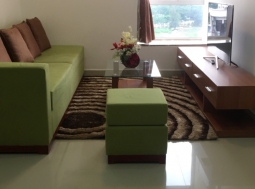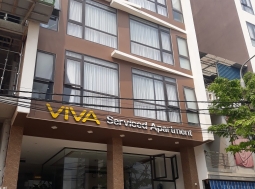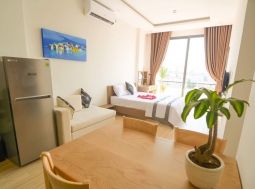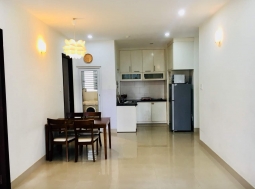Expert Tips for Renting Office Space for Your Small Business
Thứ sáu, 15/11/2019
Expert Tips for Renting Office Space for Your Small Business
There’s a lot to think about when you’re looking into renting office space for your business. You’re going to want to weigh everything from how much space you need to who your landlord will be and what their reputation is.
Given that renting office space will most likely end up being one of the biggest expenses for your company, you don’t want to rush into making a decision — due diligence is essential. This will include making sure that the space accommodates your current needs, while leaving some room for your company to grow.
One of the first big questions you’ll have to answers is if shared office space is the right choice for your business.
To Share or Not to Share? That is the Question
Shared office spaces, such as WeWork and Regus, were once thought of as a realm for freelancers and other one-man-bands. However, co-working communities have quickly become a viable option for many small and medium businesses, as well.
According to Statista, “In 2017, there were 542,000 people working in co-working spaces in the U.S., and this is forecasted to increase to about 1.08 million in 2022.”
Despite the popularity and the projected growth of co-working communities, the type of office space can be a double-edged sword. This is most exemplified by social aspects of the space.
On the one hand, shared office space can seriously hamper the productivity and efficiency of your company due to excessive distractions outside your control. Because shared office space is less structured than traditional offices, there are often a lot more blurred lines with regards to socializing. For example, is your employee over there chatting with someone on his break time, the company clock, or is it work related?
You simply don’t have the time — or energy — to babysit in those situations. You have to be able to trust that your team isn’t getting distracted to the point that it’s putting you behind schedule.
On the other hand, there is a serious advantage to being around other entrepreneurs and business owners who are tackling similar issues as you. The best spaces are going to host networking events from happy hours to educational workshops that can give you a chance to mingle with like-minded people.
Additionally, if you’re in an office with a many other startups, you’ll be more likely to grab the attention of angel investors searching for their next Warby Parker.
Though a shared office will give you and your team the chance to show up and get straight to work, there are going to be limitations on what you can do with regards to decor and designing the setup of the office.
Of course, once you’ve settled on whether you want shared office space or your own office, there are still plenty of factors you’ll need to consider, such as how much space you need.
How Much Space
Nailing down exactly how much square footage your business really needs is one thing you’ll want to do early in your search for an office. Without having that figure, it’s hard to know what places will be a good fit for you.
If you end up with too much space, you’re burning money, which can be hard for a young business to survive. If you don’t have enough space, you’ll end up taking a hit on efficiency and productivity, which can also leave you burned.
To start, you should aim to answer a few basic questions:
How many employees do you have?
How many employees do you plan on adding in the next five years?
What kind of staffing will you be adding?
Does everybody need to have their own desk or can they share desk space?
First knowing how many employees you have helps you to determine a rough estimate of how much office space you’ll need. More specifically, the range for office space is usually between 150 and 350 square feet per employee. However, this will vary some depending on your industry, employee density, and required common space.
There is a temptation by many entrepreneurs when they’re first getting their feet wet and renting office space to cut corners wherever they can — it’s part of the so-called “lean” business model. However, cutting the wrong corner can end up costing your business substantially.
One such corner you’ll want to avoid cutting is hiring a commercial real estate broker. Unless you’re renting a piece of property from your Uncle Vinnie, and he’s given you an offer “you can’t refuse,” you’re going to be best off having a professional on your side when it comes to finding the right office space with the right lease.
Part of this is because it can be overwhelming to deal with finding office space and securing the best-possible lease. You have a business to run and clients to meet and employees to take care of. If you add what is essentially a full-time job on top of all of that, you’re setting yourself up for a rapid burnout. Contacting a real estate professional, specifically a tenant representative, is necessary to ensure you understand all aspects of the negotiation process, as well as maximize your leverage in the market. An experienced tenant broker will help educate you on all the critical variables that go into a deal, both economic and non-economic, so you can be positioned to make the best business decisions for your office space.
Additionally, a broker will have firm knowledge of the landlord landscape. They will know which landlords are going to be flexible and who is motivated to go the distance to accommodate a tenant. They’ll also know which landlords have a reputation for burning business owners and causing serious damage to young businesses.
Lastly, and this is not to be overlooked, your broker is going to be able to take you clause-by-clause through your lease agreement explaining everything and clarifying anything you might be unsure of, such as: if there’s a fire, who pays for the water damage from the sprinkler system?
Final Thoughts: Expert Tips for Renting Office Space for Your Small Business
Renting office space for your business is no small feat. And, unfortunately, mistakes at this point can be very costly. Keep in mind exactly what you’ll need, including room for growth, then set a clear budget.
Then, you’ll be best off reaching out to an expert with your basic ideas and allowing them to sift through what properties are out there, arranging tours of office spaces for you.
With a broker on your side, not only will you be taking a huge burden off your shoulder, you’ll have someone to help negotiate your lease agreement, ensuring there are no pitfalls in the contract’s language.
Another aspect of renting office space you’ll want to consider at this stage? Making sure you have the funds to make it happen!
RELATED NEWS
HOT REAL ESTATE






























